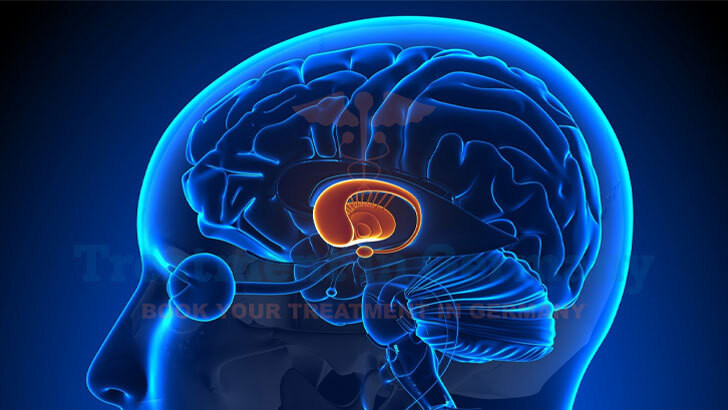
Parkinson’s disease is an age-related degenerative brain condition, meaning it causes parts of your brain to deteriorate.
Parkinson’s disease is a progressive neurological disorder that affects movement and is primarily caused by the loss of dopamine-producing brain cells. It is one of the most common neurodegenerative disorders worldwide, significantly impacting the quality of life of those affected.
Early diagnosis and effective treatment can greatly improve symptoms and slow disease progression. Germany is at the forefront of innovative treatment approaches, offering advanced medical technologies, expert neurologists, and cutting-edge therapies for Parkinson’s disease.
Parkinson’s disease is a chronic disorder that affects the central nervous system, primarily impairing motor function. It was first described by Dr. James Parkinson in 1817 and is characterized by symptoms such as tremors, stiffness, and difficulty with balance and coordination.
Parkinson’s disease manifests in different ways, and understanding its types is essential for accurate diagnosis and treatment:
Risk Factors
Symptoms of Parkinson’s disease
Motor Symptoms:
Non-Motor Symptoms:
Diagnosis and Diagnostic Tools
Diagnosing Parkinson’s disease involves a combination of medical history evaluation, physical examination, and diagnostic imaging:
Imaging Techniques:
Innovative Treatment Options in Germany
Germany is renowned for its advanced medical infrastructure and innovative treatment approaches for Parkinson’s disease. Patients benefit from state of the art therapies, expert neurologists, and access to clinical trials.
Deep Brain Stimulation (DBS)
Deep Brain Stimulation is one of the most effective surgical treatments for advanced Parkinson’s disease:
Dendritic Cell Therapy
Dendritic cell therapy is an innovative immunotherapy designed to slow the progression of Parkinson’s disease:
Hyperthermia Therapy
Hyperthermia is a complementary therapy often used in conjunction with other treatments:
Levodopa-Carbidopa Intestinal Gel (LCIG) Therapy
LCIG therapy provides continuous delivery of medication for symptom control:
Physical and Occupational Therapy
Complementary Therapies
Germany integrates complementary treatments to support overall well-being:
Why Choose Germany for Parkinson’s Treatment?
Germany is a global leader in medical care, offering numerous advantages for Parkinson’s patients:
Conclusion
Parkinson’s disease is a challenging condition, but innovative treatment options and advanced medical care in Germany offer hope and improved quality of life for patients. From cutting-edge therapies like Deep Brain Stimulation and dendritic cell therapy to holistic rehabilitation programs, German hospitals provide comprehensive and world-class care. With experienced doctors, state-of-the-art facilities, and a patient-centric approach, Germany remains a preferred destination for Parkinson’s treatment.
Whether you are seeking expert diagnosis or the latest therapies, choosing treatment in Germany ensures access to unparalleled medical expertise and innovative care. Early intervention and personalized treatment can make a significant difference, helping patients manage symptoms and maintain independence for longer. Reach out to hospitals in Germany to explore your options and take the first step toward better health.
Kindly complete the form below, and our dedicated team will reach out to you promptly. We look forward to connecting with you soon!
Trierer Straße, 56072 Koblenz, Germany

.webp)
 (1).webp)

.webp)
 (1).webp)


.webp)
 (1).webp)

.webp)
 (1).webp)
